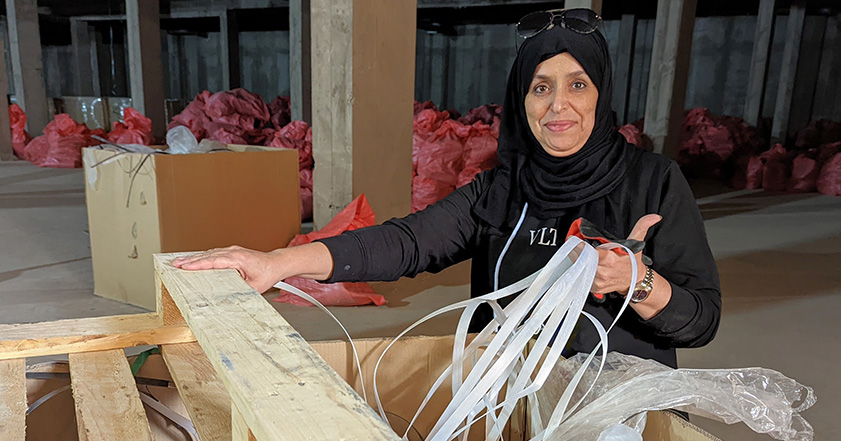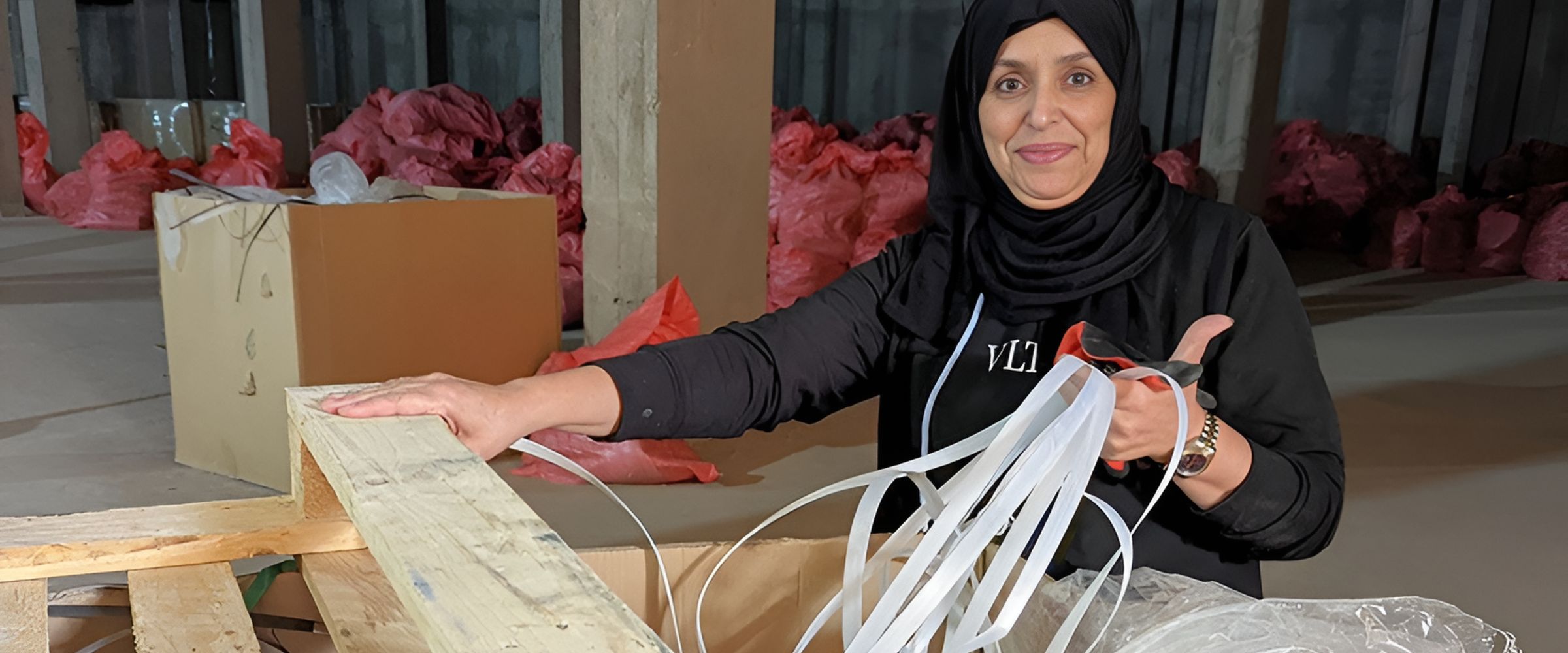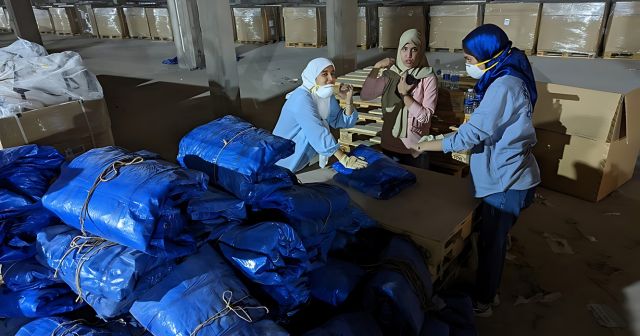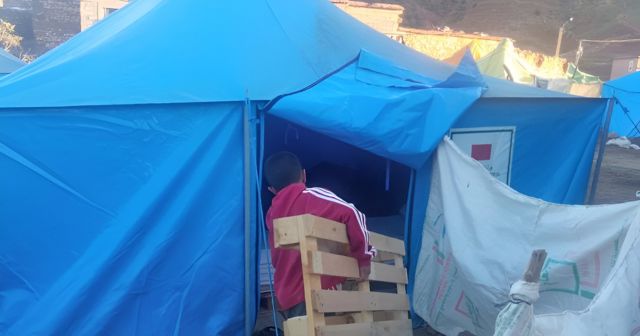Morocco
At ShelterBox, we do our best to learn and improve our practices. This helps us be more effective in our support of people after disaster. Part of these improvements includes ensuring we are not adding to the issues faced by people after a disaster. We also need to use our resources effectively and are committed to reducing our carbon footprint and use of plastics. Because of this, the team on our recent Morocco earthquake response explored ways to reduce our environmental impact.

This Earth Day, we share how our aid packaging found a new lease of life in Morocco through re-use and recycling.
We need our aid items to keep in good condition while in transit. As such, a certain amount of packaging is necessary. This packaging usually includes plastic strapping, plastic bags, and large cardboard boxes. Blankets are wrapped in poly-pro woven sheets. And, of course, there are the wooden pallets on which our aid is transported. With some responses, these items really add up. In Morocco, we had over 330 wooden pallets to find homes in our warehouse in Marrakech! We didn’t want them to enter the waste stream in Morocco. We also didn’t want them to cause issues for the village communities we were supporting.
With some research and thanks to the initiative of one of our partners, Le Foundation Grand Atlas, all these items were put to good use. This was largely due to the assistance of Habiba Guonaine (pictured at the top of the page) from a newly formed women’s association in Marrakech. Members of the association were extremely helpful in packing our aid items into bags in the Marrakech warehouse. Along with members from the Rotary Club of Majorelle, Marrakech, they ensured our aid was ready for distribution. Afterward, they arranged for the plastics to be taken to a recycling center. Here, they were ground down and made into pellets. The pellets were then used to create new items. This included kitchen utensils, plastic bottles for cleaning supplies, and rubbish bags.
The other items found good uses, too. We could not support everyone affected by the earthquake, but some packaging materials helped others. Along with the plastic materials, fifty pallets and a lot of the cardboard was used to support families in the foothills of the Atlas Mountains. The pallets were used as flooring in shelters. They keep mattresses off cold and muddy ground when it rains and can be used as a base. The cardboard helped insulate the simple, single-walled tents some people had lived in since the earthquake. The blue polypropylene woven sheets were used to patch up shelters. They also helped keep groundwater and mud out of tents.
Along with the women’s association, The Rotary Club of Majorelle made use of a further 100 pallets. They distributed them to earthquake-affected families. This was alongside mattresses, pillows, blankets, and rugs supplied by the club. The pallets will help keep furniture and bedding off the ground and insulated from the cold.
These simple initiatives not only reduced waste: they also helped to keep families warm and dry at a time of year when temperatures plummet in the mountains, and snowfall is common.



